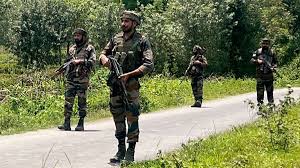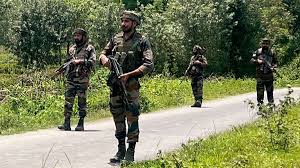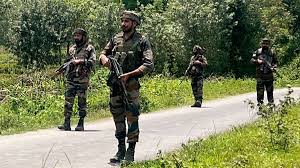assam rifles
assam rifles

Table of Contents
In a significant political development, Kuki-Zo MLAs in Manipur have urged the central government to reconsider its decision to replace the in the state. , a paramilitary force with a long-standing presence in the northeastern region, has been central to maintaining law and order in Manipur, particularly in the volatile and ethnically sensitive hill areas where the Kuki-Zo communities primarily reside. The MLAs’ plea reflects deep concerns over the potential implications of this decision on security, ethnic relations, and the broader stability of the region.
Background of the Assam Rifles in Manipur
The is one of India’s oldest paramilitary forces, with its origins dating back to 1835. Often referred to as the “Sentinels of the Northeast,” the have been deeply entrenched in the security dynamics of the region. Their responsibilities include counterinsurgency operations, border security along the India-Myanmar border, and maintaining internal security.

In Manipur, the have played a crucial role in curbing insurgency and maintaining peace, particularly in the hill districts where ethnic tensions between the Kuki, Naga, and Meitei communities have periodically erupted into violence. The force’s familiarity with the local terrain, population, and ethnic dynamics has made it a trusted and effective security presence in the state.
The Decision to Replace the Assam Rifles
The central government’s decision to replace the in Manipur has been met with apprehension, particularly among the Kuki-Zo communities. Although the official rationale behind the decision has not been fully disclosed, it is believed to be part of a broader strategy to reassign military and paramilitary forces in the region. This move might involve the deployment of other central armed police forces (CAPFs) or the Indian Army to take over the security duties currently managed by the Assam Rifles.
The decision comes at a time when Manipur is experiencing a delicate peace, with the state still grappling with the aftermath of ethnic violence, insurgent activities, and the complex socio-political dynamics between its various communities. The Kuki-Zo MLAs, who represent constituencies in the hill districts, have expressed serious concerns about the timing and potential consequences of this move.
Kuki-Zo MLAs’ Concerns
The Kuki-Zo MLAs’ appeal to the Centre to rethink the decision to replace the is grounded in several concerns:
1. Security and Stability
The most immediate concern is the potential impact on security and stability in the hill areas of Manipur. The have developed a deep understanding of the local ethnic complexities and have established a rapport with the Kuki-Zo communities. Their presence is seen as a stabilizing factor, particularly in areas where the risk of ethnic clashes or insurgent violence remains high. Replacing the with another force unfamiliar with the local dynamics could disrupt this delicate balance and lead to a deterioration in law and order.
2. Trust and Familiarity
The have been stationed in Manipur for decades, and over time, they have built a significant level of trust with the local communities, especially in the hill districts. The Kuki-Zo communities, who have often found themselves caught in the crossfire of ethnic and insurgent conflicts, view the as a reliable protector. The prospect of a new force replacing them raises fears of mistrust, miscommunication, and potential heavy-handedness in dealing with local issues, which could exacerbate tensions.

3. Ethnic Sensitivities
Manipur is a state with a complex ethnic mosaic, and the hill districts, home to the Kuki-Zo communities, have a history of ethnic conflicts, particularly with the Naga and Meitei communities. The Assam Rifles have managed to navigate these ethnic sensitivities with a degree of neutrality and impartiality that has been crucial in preventing escalations. The Kuki-Zo MLAs fear that a new force may not be able to maintain this balance, leading to a resurgence of ethnic violence.
4. Counterinsurgency Operations
The hill districts of Manipur have been a hotbed of insurgent activity, with various groups vying for influence and control. The have been at the forefront of counterinsurgency operations, leveraging their extensive experience and local intelligence networks. The Kuki-Zo MLAs are concerned that a new force might lack the expertise and local knowledge necessary to effectively combat insurgency, potentially leading to a resurgence of militant activities in the region.
5. Impact on Peace Processes
There are ongoing peace processes and dialogues involving various insurgent groups in Manipur, including those representing the Kuki-Zo communities. The have often played a crucial role in facilitating these dialogues by maintaining security and providing a neutral presence. The Kuki-Zo MLAs worry that replacing the Assam Rifles could disrupt these delicate peace processes, leading to a breakdown in negotiations and a return to conflict.
The Broader Context
The Kuki-Zo MLAs’ concerns must also be viewed in the broader context of Manipur’s political and ethnic landscape. The state has a history of ethnic tensions and insurgent movements, with different communities vying for autonomy, political power, and control over resources. The hill districts, where the Kuki-Zo communities are concentrated, have often felt marginalized by the state government, which is dominated by the Meitei community from the Imphal Valley.
In this context, the decision to replace the, seen as a relatively impartial force, could be interpreted by the Kuki-Zo communities as another attempt to undermine their security and autonomy. This perception could lead to increased alienation and unrest in the hill areas, further complicating the state’s already fraught political situation.
The Central Government’s Position
While the central government has not publicly elaborated on the reasons for its decision to replace the , it is likely driven by a combination of strategic, operational, and political considerations. These may include a desire to streamline the command structure of security forces in the region, reassign the Assam Rifles to other areas where their expertise is needed, or address specific concerns related to the force’s performance or conduct.







